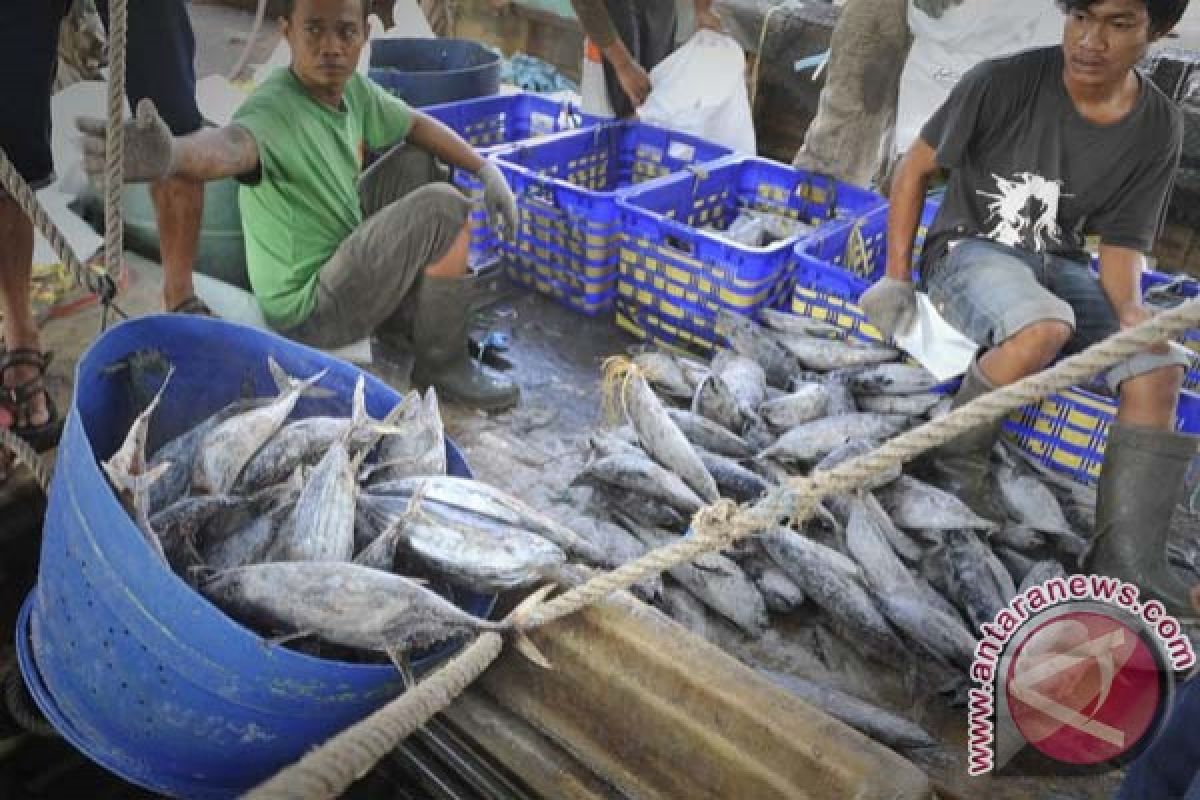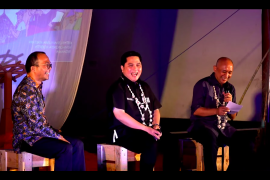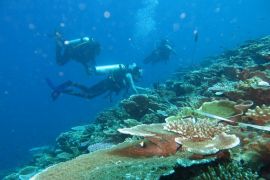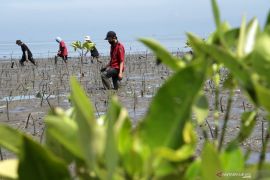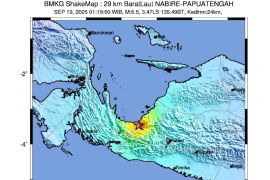We find it increasingly important to empower the coastal villages and fishing communities ..."Jakarta (ANTARA News) - The empowerment of coastal villages and fishing communities across Indonesia is inevitable, as it aims to improve the downstream fishery industry.
In Indonesia, coastal villages hold abundant marine economic potential, with a variety of fish, shellfish, shrimp, crabs, and seaweed, as the main export commodities of the country.
Indonesia is home to 75 percent of the worlds coral species, at least 30 percent of the fish species, and 20 percent of the total global mangrove cover, as well as numerous species of seagrass that should be counted as the countrys precious marine resources.
Therefore, the Indonesian Traditional Fishermens Association (KNTI) has called on the government to empower the coastal villages across the country to improve the downstream fishery industry in order to create added value.
"Coastal villages across the country should be empowered in order to become the centers of the peoples economy and downstream fisheries and marine products," KNTI Chairman Riza Damanik affirmed here on Wednesday.
The KNTI chairman reminded that of the over 13 million workers in the fisheries sector, 51 percent are involved in fisheries and aquaculture production, 38 percent in marketing, and only 11 percent in the processing sector.
In the meantime, the Peoples Coalition for Fisheries Justice (Kiara) Secretary General Abdul Halim noted that the Ministry of Maritime Affairs and Fisheries (KKP) should not only handle illegal fishing but also work towards increasing self-reliance in the fish processing industry of the country and comprehensively reform the maritime sector from upstream to downstream.
"Until now, the maritime affairs and fisheries ministers policy related to the independence of the fish processing industry in the country has yet to be finalized," Abdul remarked.
According to Abdul, the KKP should focus on ways to facilitate cooperatives for fishermen and household businesses to engage in increasing the value-add of the fish catch.
To this end, Abdul stated that the CTF should allocate at least 40 percent of its budget to support domestic fish processing activities, especially for cooperatives and household-scale industries.
He also highlighted the importance of KKPs cooperation with the Ministry of Foreign Affairs and the Indonesian embassies abroad to maximize the marketing activities of domestically processed fish products in foreign markets as part of President Joko Widodos (Jokowis) maritime axis policy.
President Jokowi has proclaimed his vision of transforming Indonesia into a global maritime axis, with the key objectives of revitalizing the maritime economy, refining the management of fisheries, and creating maritime food security and sovereignty, among others.
In keeping with Jokowis vision, the Ministry of Rural, Disadvantaged Regions and Transmigration (Kemendes PDTT) has encouraged the establishment of Village-owned Enterprises (BUMDes) in all coastal villages to improve the local economy and empower the fishing communities.
"We find it increasingly important to empower the coastal villages and fishing communities in our bid to strengthen the maritime axis vision of President Jokowi," Rural, Disadvantaged Regions and Transmigration Minister Marwan Jafar affirmed.
The minister and the National Awakening Party (PKB) politician noted that the presence of BUMDes in the coastal villages will accelerate the process of empowering the villages and fishing communities.
Marwan stated as quoted by Ayo ke Desa (Lets Go to Village) magazine, published by his ministrys Directorate General of Rural Area Development that BUMDes are considered as the most appropriate medium to manage and develop the coastal villages and fishing communities.
The countrys natural marine resources are indeed a blue diamond, and the World Banks data indicated that Indonesian fisheries represent five percent of the global production, which equals US$20 billion annually.
The figure would be even greater if the value of economic losses due to illegal fishing was added, which could reach US$8 billion, he remarked.
No wonder, realizing the maritime axis vision will yield greater benefits not only to the government but also to the people, in particular to those inhabiting the coastal areas.
At least 60 percent of the Indonesian population lives along the coastline, and thus, focusing development in this area would help improve the welfare of the coastal communities and strengthen Indonesias position as a rising economic powerhouse.
Coastal and maritime development has so far neglected the role of the local communities through public participation.
"Therefore, the efforts to promote a coastal community-based economy should be the main target of this BUMDes program," the minister emphasized.
He explained that the efforts should begin with improving the economic infrastructure, such as the fish markets, fishing fleets, and sustainable marketing channels, so that small communities can garner greater benefits from this program.
The creation of BUMDes involving the coastal villages and fishing communities can help improve awareness regarding the importance of marine resources and the local communities ownership of this biological richness.
"BUMDes can play several roles in a bid to boost village fishery businesses, such as providing soft loans to fishermen, providing boats and fishing equipment, drying facilities, storage facilities, vehicles, and the management of fish auctions," Marwan noted.
Therefore, he stated that the government is making every effort to develop thousands of villages, including those along the coastal areas, as part of President Jokowis nine priority programs, known as Nawa Cita, to build the nation from its peripheral regions and to modernize rural areas.
The government has launched the Universal Rural Development Movement to encourage development to reach more villages across the country.
(T.O001/INE/KR-BSR/F001)
Reporter: Otniel Tamindael
Editor: Priyambodo RH
Copyright © ANTARA 2015
